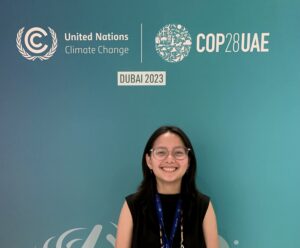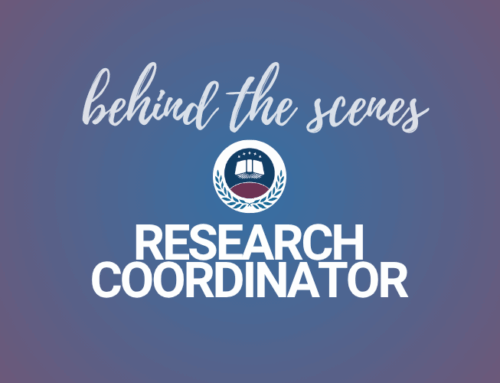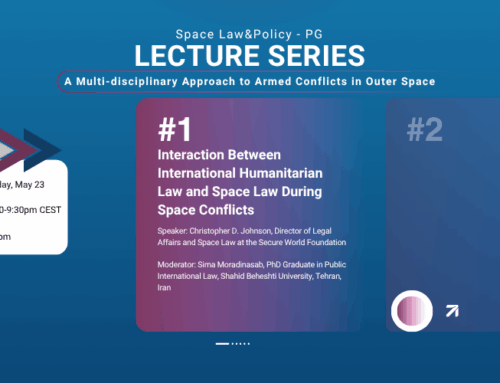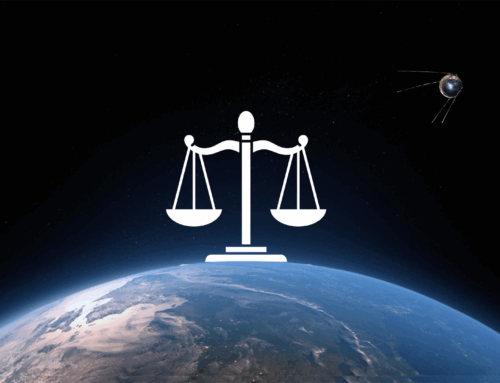“It’s always a struggle to defend why we need a space program in the Philippines, and I’ll say it over and over again: I feel like we need it. I think it’s high time for developing countries to [plant] our flag [in this field].”
Angelika “Ika” Pizarro is a policy specialist at Parabukas Pte. Lte., a women-led, Asia-based international consultancy focused on laws and policies related to climate change, environment and sustainable development. In her early career, she held positions at the Ateneo Policy center and the then-emerging Philippine Space Agency. She credits SGAC, where she currently serves as Research Coordinator, for inspiring her to pursue space policy as a career.
I sat down to call Ika a few months ago, during what we Canadians would call ‘winter’. Outside my window, bare trees like dark, twisted antennas filtered a rain-soaked sky. To my delight, warm sunlight was simply spilling in from Ika’s side of the world, and the faint sounds of motorbikes revving in her streets reminded me of an extra-seasonal energy that would come in time.
“So, basically, the story of my life is…”
After graduating from the University of Philippines Diliman with a degree in psychology, Ika began engaging with a policy think-tank called Ateneo Policy Center. Soon following, she was encouraged by a colleague to apply for a position at the Philippine Space Agency (PhilSA). She was successful and soon found herself reporting to the Director General on matters concerning policy and international affairs, as well as partnerships in Europe and Asia. When she started out at PhilSA, it had been up and running for barely two years.
“I, myself, had to learn everything from scratch.” She told me with a wistful smile. “I’d wake up at 7 a.m. with no coffee, [I’d] sleep as late as 11 p.m. because I loved my job so much.”
I asked her if, given that the Philippines is a developing country, she had often encountered the question: ‘Why allocate so many funds to space when there are so many other issues here on Earth?’.
“When you work in the government, it’s the number one question.” She replied. “It’s always a struggle to defend why we need a space program in the Philippines, and I’ll say it over and over again: I feel like we need it. I think it’s high time for developing countries to [plant] our flag [in this field].”
To Ika, it’s also a matter of posturing. She believes that space policy will only increase in relevance in the coming years, and that the global technological gap will only widen. She doesn’t want to see her country left behind.
After two years of serving at PhilSA, Ika decided to focus more on research. Working for a program that was so new had meant juggling multiple responsibilities and objectives, but she felt a growing need to devote more time to specific issues. Again at the advice of a colleague, she joined SGAC to see if part of her still longed for the field of space policy outside the bubble of PhilSA. She credits her experience at SGAC for solidifying her love for the subject.
“The people I work with at SGAC inspire me everyday to become better.” She said, “And the people I work with allow me to see what kind of future self I want to be.”
Ika carried this passion into her next role. When she began her present position at Parabukas Pte. Lte., she championed the introduction of space policy into their environmental policy portfolio.
“Space policy is a relatively new field in the Philippines and opportunities don’t come [by] so often.”
One exploratory research initiative she contributed to looked into the impacts of fallen rocket bodies on a local community in the Philippines–an occurrence that, though often overlooked, is not uncommon near the province where Ika lives. Another initiative analysed the potential role of space-based data to document losses and damages to explore the intersection of climate and space policy.
How long is too long at the Fair?
When Ika shared that she left her job at PhilSA, I was initially surprised. It had seemed like an ideal opportunity for a young professional pursuant of a career in space policy. So I pressed her on this–I asked how one knows when it’s time to move on. Especially for early-career professionals, I think it’s often difficult to discern the difference between being comfortable and being complacent, simply because we may have less variety in long-term work experiences.
She didn’t miss a beat. “My primary consideration is to reflect: How is my current job serving my interests?”
Ika explained that she took time to reflect on the question ‘Where do you see yourself in 5 years?’ It was a question she hadn’t fully understood the importance of growing up, but soon realized was essential to answer as an adult. “You have to think, how is my current position going to help me in the future? If I see that the experiences are no longer serving that purpose, I consider pursuing other opportunities elsewhere.”
Though her decision was a brave one, Ika shared that it wasn’t all easy. However, any mishaps she has had along the way have only made her wiser.
To her younger self, she would say, “If it’s just fear that’s stopping you from doing things, get rid of it.”
“I almost didn’t make it to my interview for the [SGAC] Research Coordinator role because I was so scared.” She told me. And we all know how well that ended up turning out!
The Road Ahead
Ika is always seeking avenues of professional development. She is planning to go to law school, which is a whopping four-year commitment in the Philippines. Her goal is to study domestically so she can directly apply her studies to the burgeoning space industry of her home country.
“I believe that everything can be learned.” She smiled.
Want to nominate a colleague for the next SLP Highlight? You can do so completely anonymously by filling out this google form: https://forms.gle/Qj4vrLbCfQf3MJXDA.
This post was written by Mackenzie Pereira, SLP Professional Development team member.







